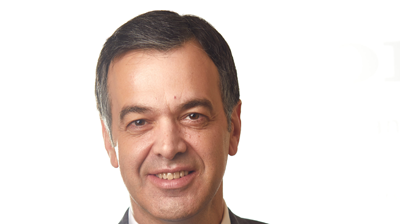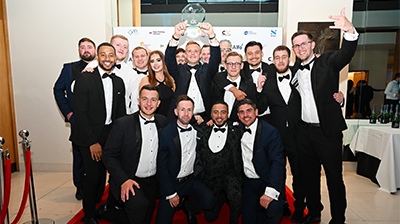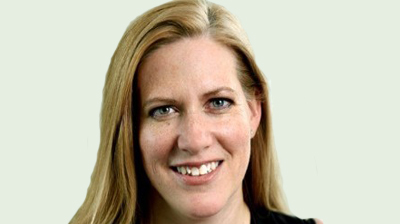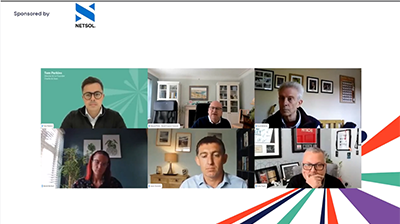
Volvo Group veteran Marcio Pedroso was appointed as the new president of Volvo Financial Services (VFS) in March 2020. Having spent almost 20 years with the Group, he was already familiar with its operations and has held a number of senior positions within VFS since 2001.
Pedroso told Asset Finance International that while turbulent changes may be shaking the industry, they would not redefine the central secrets to success in asset finance – namely the importance of understanding customers and staying close to them.
He said: "The industry may be having a tough time from the effects of the virus, but I do not believe that the asset finance business has changed fundamentally. Society is changing however, and the pandemic has accelerated some of the trends that were happening anyway.
"The biggest of these changes is digitalization, and Volvo Financial Services (VFS) has introduced new digital support options, virtual meetings and other initiatives to make lending easier in a world of social distancing. We are also piloting how AI can help with repetitive activities, speed up the processing of applications, and evaluate risk in a more efficient way.
"I believe that in this business close personal relationships and really knowing our cusomers will remain the order-winning criteria, but digitalization will increasingly be the qualifying criteria – helping to make the journey – from purchase to repurchase – better, simpler, faster and more convenient. This crisis has shown that we need to move this digital transformation even higher up our list of priorities.”
Flexible working
"I have been so proud of how the entire team at VFS has responded throughout my early months at the helm of this organization. Unable to visit all parts of the company, my first 100 days of running this global business has seen me leave my own home very little. While that was not quite the start I was expecting, it has increased my attention on ‘presenteeism’ and our longstanding practice of expecting people to be physically at one's place of work five days a week.
"With an estimated 90% of VFS staff working from home, our people have shown energy and commitment throughout – despite the impact on their own lives, kids out-of-school and the worries of contracting the virus. Through all of this, everyone has remained committed to the business and to helping our customers. I still believe that we need to come together in order to build upon and nurture our culture and relationships, but we are now more flexible on where people need to work from.”
Disaster recover
"While my first 100 days leading VFS has involved a lot of uncertainty and a fair amount of crisis management, it was not the first time my working and personal lives have been upended by a virus.
"In 2007, I became managing director for VFS in Mexico. What felt like moments later, the Financial Crisis arrived – challenging me with managing a business with finance volume down 80% and the banking sector in the midst of a liquidity crisis. As if that were not bad enough we also had a Swine Flu outbreak – and were placed in lockdown for two weeks, with all of my team working remotely from home.
"Looking back, my previous disaster recovery experience has been valuable. I believe that it is easy to be friends when times are good. It is when times get tough that you show you are in it for the long haul. Overall, I think the whole finance industry has done well in this crisis, providing liquidity and keeping calm. In our business, we are always evaluating risks and scenario planning the next downturn. And while we did not foresee an economic shock as big as this one, VFS already had a good plan in place, and that is what we have been rolling out these last few months. We had the playbook, so what was needed from me was calm guidance and quick decision making to cope with the rapidly changing circumstances. We did not always know all of the facts or answers, but that is okay, we continually adapt the plan as we learn more.
"As I said earlier, one of the key things we have done is to keep close to customers and understand their needs. With business activity much lower, many customers are trying to protect their cashflows. We get that, and have offered payment holidays and a range of other support. I am on the side of the little guy – in fact, I am a little guy myself. I am one of eight children and I started work at 14, and went to nightschool to get my first degree – the first in my family to get one. I understand that if trucks aren’t trucking, construction equipment isn’t working, and buses aren’t transporting people, then repaying loans is difficult.”
Reputations are worth protecting
"Being a captive finance house has its advantages. It is not just our reputation that is on the line, but those of the 12 Volvo Group brands we support worldwide*. We really understand our customers and their businesses, and taking care of them now will result in increased brand loyalty, as well as additional product and service purchases in the long term. That is one of the reasons why captive finance houses tend to grow market share during downturns. We have seen that during this crisis – sales volumes are down for sure, but finance penetration has gone up. But we are always there for our customers, during good and bad times.
"With the world opening up, people getting back to work and massive stimulus programs in many countries set to underpin damaged economies, there are grounds for optimism, but there are still a lot of uncertainties out there.
Nevertheless, we believe in our dealers and customers, we are maintaining the good shape of VFS, and through the commited and flexible team of high performing colleagues I have – we will come through this struggle united.”






